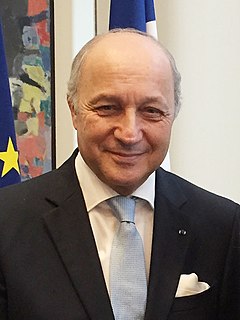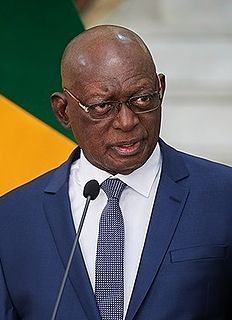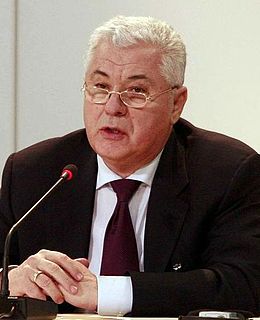| ||||||||||||||||
| ||||||||||||||||
All 147 seats to the National Assembly | ||||||||||||||||
|---|---|---|---|---|---|---|---|---|---|---|---|---|---|---|---|---|
| ||||||||||||||||
| ||||||||||||||||
 |
|---|
| This article is part of a series on the politics and government of Mali |
Parliament |
|
Parliamentary elections were held in Mali on 24 November 2013. [1] President Ibrahim Boubacar Keïta's party, Rally for Mali, won 66 of the 147 seats in the National Assembly, with its allies winning an additional 49 seats, giving it a substantial majority. The Union for the Republic and Democracy, led by Soumalia Cissé, won 17 seats, becoming the Opposition. [2]

Mali, officially the Republic of Mali, is a landlocked country in West Africa, a region geologically identified with the West African Craton. Mali is the eighth-largest country in Africa, with an area of just over 1,240,000 square kilometres (480,000 sq mi). The population of Mali is 18 million. 67% of its population was estimated to be under the age of 25 in 2017. Its capital is Bamako. The sovereign state of Mali consists of eight regions and its borders on the north reach deep into the middle of the Sahara Desert, while the country's southern part, where the majority of inhabitants live, features the Niger and Senegal rivers. The country's economy centers on agriculture and mining. Some of Mali's prominent natural resources include gold, being the third largest producer of gold in the African continent, and salt.

Ibrahim Boubacar Keïta, or as he is often known, IBK, is a Malian politician who has been President of Mali since 2013. Previously he was Prime Minister of Mali from 1994 to 2000 and President of the National Assembly of Mali from 2002 to 2007. He founded a political party, Rally for Mali (RPM), in 2001. He was elected as President in the July–August 2013 presidential election and sworn in on 4 September 2013.
The Rally for Mali is a Malian political party created by Ibrahim Boubacar Keïta in June 2001. In 2013, Keita was elected President of Mali following several attempts, and the party took first place in parliamentary elections, winning 66 seats, although not enough for a majority.
Contents
The elections had originally been planned for 1 and 22 July 2012, [3] but were postponed after the Tuareg Rebellion and the March 2012 coup d'état. A second round of voting was held on 15 December 2013. [4]

The 2012 Malian coup d'état began on 21 March that year, when mutinying Malian soldiers, displeased with the management of the Tuareg rebellion, attacked several locations in the capital Bamako, including the presidential palace, state television, and military barracks. The soldiers, who said they had formed the National Committee for the Restoration of Democracy and State, declared the following day that they had overthrown the government of Amadou Toumani Touré, forcing him into hiding. The coup was followed by "unanimous" international condemnation, harsh sanctions by Mali's neighbors, and the swift loss of northern Mali to Tuareg forces, leading Reuters to describe the coup as "a spectacular own-goal". On 6 April, the junta agreed with Economic Community of West African States (ECOWAS) negotiators that they would step down from power in return for the end of sanctions, giving power to a transitional government led by parliament speaker Dioncounda Traoré. In the following days, both Touré and coup leader Amadou Sanogo formally resigned; however, as of 16 May, the junta was still "widely thought to have maintained overall control". On 3 December 2013, a mass grave was discovered in Diago holding the remains of 21 soldiers that went missing the year before, loyal to the ousted president.













